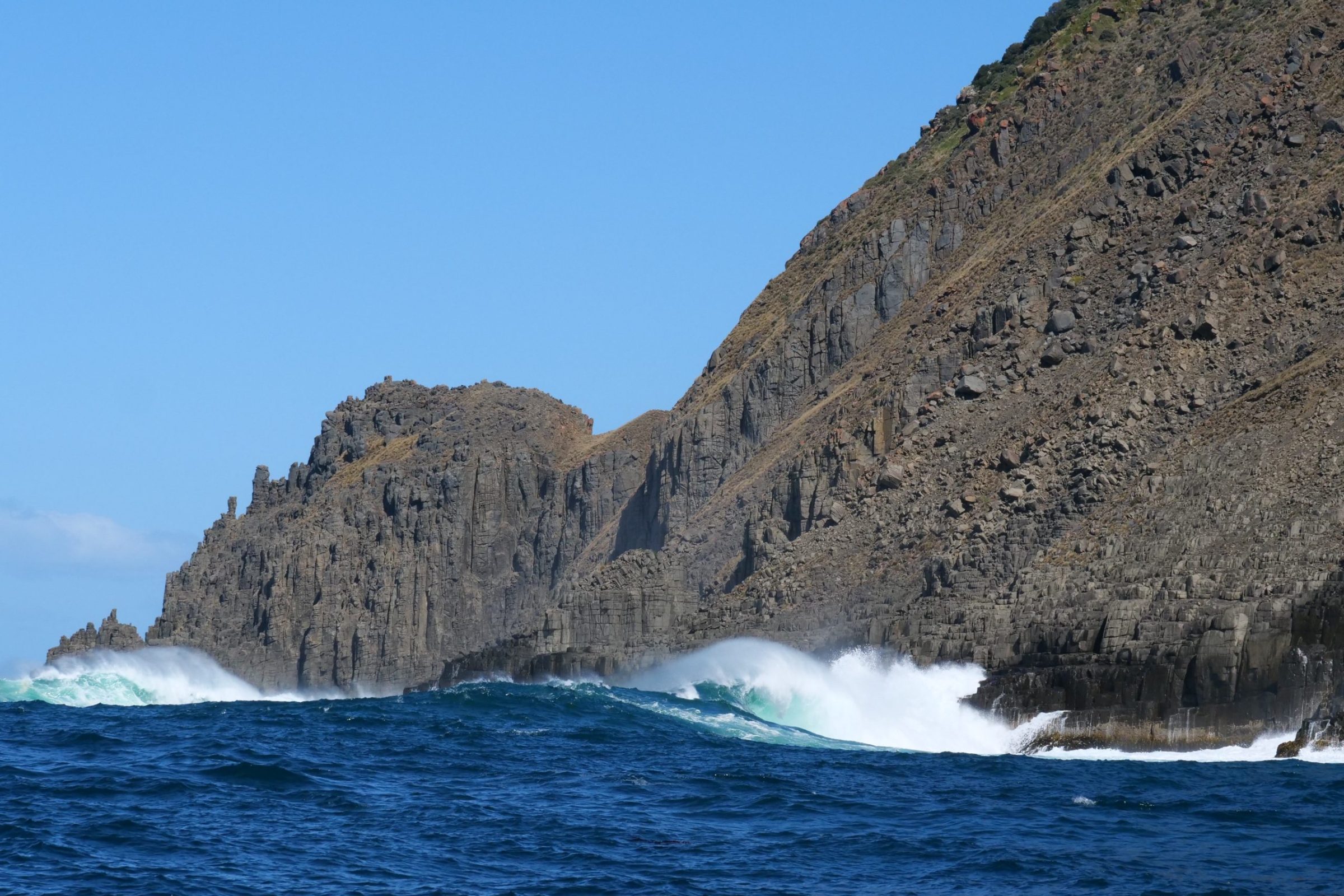Those pictured were about to meet the southern edge of Tasmania’s Bruny Island.
The next substantial landmass, thousands of kilometres distant, is Antarctica.
The waves which inspired today’s music broke upon a tropical, Brazilian shore.
When I took the photo, at 12.36 pm on 21 March 2018, the Tasman Sea was relatively flat, by Bruny standards.
Bruny Island is a wonderful place, and a single day return excursion from Hobart will give you a memorable experience, but leave you wishing you had allowed more time.
There are fine walks aplenty, but the absolute “must” is to see Bruny’s spectacularly rugged shores from the water just off them, from a certain tour operator’s incredibly agile boats.
(this is an absolutely unsponsored, non-monetised blog, and I rarely point to any commercial enterprise, but – having taken more than one excursion with this outfit, and having had many “boat in wilderness” experiences in various latitudes, I cannot do other than recommend this company, wholeheartedly. There is no idiotic hype, no stupid muzak, and the places they go to are magnificent)
—
Dorival Caymmi (1914-2008) was one of the greats of Brazilian music.
Another is Caetano Veloso (born 1944, and also from Bahia)
Whenever I hear people musing aloud about “who is pop music’s supreme genius songster?”, and arguing about whether it’s Paul McCartney, Brian Wilson, Neil Finn, Bob Dylan, or whoever, I always hear myself silently shouting, “what about Caetano?”
Some years ago, when Dorival Caymmi was still alive, Caetano Veloso said this:
I have written 400 songs, and Caymmi 70. But Caymmi has 70 perfect songs, and I do not.
O Mar (“the ocean”) is one of Caymmi’s many ocean-connected compositions.
The original had lyrics which told of a fisherman who sailed out, but failed to return.
One of the most highly creative Brazilian guitarists was born Djalma De Andrade, in 1923, in Rio; he spent most of his later years in California, and died there in 1987.
He was known as Bola Sete, a nickname that referred to his black skin, at a time when most prominent Brazilian musicians were white.
Bola Sete is misrepresented in most online bios.
They portray him as a “bossa nova” and/or “jazz” guitarist.
However, his most remarkable work is much more sui generis, at once more “folkloric” and more “classical”, and a deal darker, more dramatic than “bossa nova”.
This bio is much better informed, and more revealing/discerning than Wikipedia’s.
Bola Sete’s greatest album was recorded in 1972.
Fantasy Records declined to release it.
John Fahey then “discovered” Sete, and in 1975 Fahey’s Takoma Label released the “rejected” album as Bola Sete’s Ocean.
An expanded double CD was later posthumously issued as Ocean Memories.
Most of the world has never even heard of Bola Sete, but all over the world there are people who consider Ocean one of the greatest solo guitar albums.
Its version of O Mar was retitled Ocean Waves.
